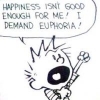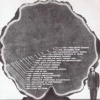-
Posts
348 -
Joined
-
Last visited
Reputation Activity
-
 ToomuchLes got a reaction from thedig13 in Fall 2015 Applicants
ToomuchLes got a reaction from thedig13 in Fall 2015 Applicants
I just want to wish everyone Happy Holidays!
-
 ToomuchLes got a reaction from ashiepoo72 in Fall 2015 Applicants
ToomuchLes got a reaction from ashiepoo72 in Fall 2015 Applicants
Darn ... And I was planning to bake 12 cakes to send to the adcoms If my application isnt good enough, then my baking skills will convince them otherwise lol
-
 ToomuchLes reacted to ToomuchLes in 19th C. American History SOP
ToomuchLes reacted to ToomuchLes in 19th C. American History SOP
Below is a copy of my SOP. I decided to work on my shortest SOP (max 800 words) and expand on my subsequent SOPs that have a much higher word count limit. If there are any questions, please post here. Please, please provide constructive criticism by completely tearing apart this SOP. Im not at all sensitive about my work. This is still a rough draft. __________ Ambition and curiosity is the driving forces that compels my further historical research. As an immigrant, raised in a predominate, lower-class neighborhood, I was integrated into a peripheral society of, presumably, non-American stigmatized individuals, including African-Americans and Eastern Europeans; which, consequently, birthed the many questions I'd like to research in graduate school. At a young age, I was introduced to slave narratives, and an infinite amount of slave stories by my best friend's mother. Supposedly, her family during Antebellum America was shackled into the peculiar institution, and her great-grandmother was cleaved from her parents at a young age as a byproduct of the burgeoning domestic slave trade. Fortunately for me, I was introduced to this particular history through a personal connection.
In my first week at the University _____, I introduced myself to Professor _____, an expert on social and political slave history, becoming a regular visitor, debater and conversationalist in his office. Our friendship flourished, and he independently supplied the academic nourishment that I needed to answer the many research questions I had. Moreover, by joining a variety of student clubs, historical organization, and networking with professors from other institutions, a picture of this particular history became more vivid. In return, I organized student discussions, guest lectures, and introduced new themes as a Phi Alpha Theta officer for eager history majors like myself. Additionally, the assortment of seminars, numbering close to a dozen, improved my historical research methodologies, introduced new perspectives concerning historical objectivity, modified my approach to primary source documents, but more importantly, I became familiarized with the logistics behind the composition of a research paper. Nevertheless, as an immigrant, I still held onto my non-native views of American history, and in addition, my personal connection to this history has also produced a different perspective. This has all amounted to the research topics I'd like to study at University____ under the guidance of Professor ____.
Growing up in a confusing childhood, I sought for self-discovery by listening to those slave narratives. Independence is a concept all slaves yearned for, and so do children today; however, once grasped, a state of shock consumes the individual, and confusion, over what to do with this new freedom takes over. By investigating certain legislative patterns that led to the burgeoning of the domestic slave trade - a complete transformation in the nature of this traffic in human slaves - I would examine the experiences, social roles and relationships enslaved children had in their new environment, away from their families. I would explore the treatment of orphaned slaves by other enslaved families, and their relationship with their, supposedly, paternalistic white masters,while studying the struggles adolescent runaways had once they obtained freedom. I'd meticulously study the effects that the domestic slave trade had on children, their sale in slave markets, but also, the responses abolitionist groups had towards child divisions from their family. By studying this one aspect of the southern slave system, I believe it is possible to gain a greater understanding of not only the Antebellum South, but also of American society as a whole.
Through my own curiosity, I came across Professor _____ research, and her similar interests in early America, gender and slave history. Her work on the sexual exploitation of slave women, and more recently, her study on the manumission laws of enslaved mothers, and the relations with their children would be invaluable to my own research. Likewise, Professor #2_____ study on the experience and fate of the African diaspora, and the obstacles to emancipation for African peoples would guide many of my research ideas. Finally, historians like #3_____ and #4_____, although not pertinent to my own area of interest, would also provide additional guidance since their own research following similar questions, but dwell on different time periods and geography. Research like theirs, combined with the strength of the overall program in my area of history is a major part why I'm interested in University______. In attending this program, I will be able to answer all of my research questions, contribute to the historical community, and grow as a historian. For my career, I will return my new aforementioned studies to members of a growing group of historians that are currently examining how legislative actions in nineteenth century America effected subsequent slave generations. Likewise, I will be able to provide a new theme for students, and draw more attention to a particular history that, for the most part, has remained ignored. University______ History Graduate Program provides all the necessities that I need to achieve these goals, and in return, I would bring a new area of thought to the department.
(767 word count / 800 [still need to include names])
-
 ToomuchLes got a reaction from rexzeppelin in SOP mistakes: what to avoid
ToomuchLes got a reaction from rexzeppelin in SOP mistakes: what to avoid
Guys read this : http://honors.tamu.edu/downloads/Personal%20Statement%20Invitation%20to%20Frustration.pdf
MajorityMinority posted this a few months ago, but WOW! I can honestly say this will help me clear up my SOP. Read it! Digest it! Use it!
-
 ToomuchLes got a reaction from segwang in When to ask for LOR from a new professor?
ToomuchLes got a reaction from segwang in When to ask for LOR from a new professor?
As a transfer student, its quite hard to form relationship with many professors in a single academic year. Currently, I have 2 LOR that will fully explain my background, research, and writing abilities, as well as my strive to pursue graduate studies. Nonetheless, I still need one more LOR.
Here is my dilemma : Im taking two seminar classes, that meet once a week for 4 hrs to discuss our weekly readings, and writings. From what I've noticed, Im starting to gain favor with both professors, however since class started in late Sept, I've only interacted with them 4-5 times. I would very like to ask both of them to write me a LOR however Im unsure when I should ask. My first application is due Dec 5th, and my last on the 16th. When would be a good time to approach them for a LOR?
I was thinking the week of Nov 11th. On that same week, I shall also turn in my completed research paper which is due end of the quarter in mid Dec.
Comments?
-
 ToomuchLes reacted to JosephClarkGrew in Are humanities grad students pathetic?
ToomuchLes reacted to JosephClarkGrew in Are humanities grad students pathetic?
I just feel like humanities students are the most pathetic forms of people. Humanities are easy and pointless and that's why the field is so flooded. Sciences (such as physics) are what really impacts the world and changes things and helps people. What do humanities really do?
The students are pathetic too. They are miserable because they tried to do what they loved but society hated it. Society hates them because they are just writers and 99.9% of writers are pathetic too. Even the Simpsons hates grad students. Those poor grad students, they can't even watch the simpsons to escape their woe!
Idk, I loved humanities and thought they were great but now I realized that I was wrong to enjoy them and that writing, and humanities are bad, their practitioners are pathetic and that sciences are the only way, even if you don't enjoy them, because they are the only way to actually do things.
Maybe I'm just cynical.
-
 ToomuchLes reacted to lafayette in Applying twice to the same institution.
ToomuchLes reacted to lafayette in Applying twice to the same institution.
Just want to say that I'm a late bloomer (ten years out of undergrad & now starting my PhD) and definitely, definitely needed that time (I also got a M.A. in there). But there are a couple of straight out of undergrads in my cohort and you would never know it without them telling you. They're all confident, smart, and dedicated. I personally recommend taking time off to get a taste of life outside of academia, but in terms of academic maturity, some people are just ready at different times. There's no right age to apply that is applicable to everyone.
-
 ToomuchLes got a reaction from C&C in Contacting POI at MA programs
ToomuchLes got a reaction from C&C in Contacting POI at MA programs
I briefly introduced myself - name, major, present institution, and what I wish to pursue further. Afterward I discussed his present research, include his books, and how they correspond to my own. Finally in my concluding paragraph, I ask if hes accepting new grad students and if my research would fit in with the department. I've heard you should keep your intro letters relatively short, and never discuss the logistics of your application. As the name suggests, its an introduction.
@kdavid, for the University of California, class started less than a week ago.
-
 ToomuchLes reacted to TMP in Applying twice to the same institution.
ToomuchLes reacted to TMP in Applying twice to the same institution.
I wouldn't even worry about it, particularly if you've already contacted a prof you're interested in working with. Most faculty members don't even look at the applications until they come back from holiday break.
-
 ToomuchLes reacted to annieca in Applying twice to the same institution.
ToomuchLes reacted to annieca in Applying twice to the same institution.
He's got a bit of a deer-in-headlights look about him in class. It could be that this is a theory course and so it's above most of our heads, so take what I say with a grain of salt. The questions he asks - he phrases them as if he's not sure of himself and not just the material. I know that's a vague comment but it's the best I can give you without going into specific conversations. I have learned that professors in graduate school (and many in upper-level undergrad) demand confidence. Even if you're dead wrong about the comment in question, having belief in yourself and what you believe is something that comes with time and practice. It is also what sets apart the graduate student from the undergrad in my opinion. (Well, that and about 400 pages of reading a week)
-
 ToomuchLes reacted to czesc in Applying twice to the same institution.
ToomuchLes reacted to czesc in Applying twice to the same institution.
^ I think this may vary by department, or at least by professor. In graduate school so far, I haven't really seen professors here "demand confidence;" in their role as teachers, they're usually quite gentle with students who are just encountering material for the first time, or who are reticent (for whatever reason - maybe they know these students are simply better scholars than speakers, maybe the class is outside these students' subfield, maybe some professors simply relish a "teaching moment" rather than having to listen to a know-it-all who thinks he or she has found an original way to critique the same book the prof has been teaching forever and knows inside-out). I would imagine the bias manifests itself more at the admissions level - and that once you're in, you're given more of the benefit of the doubt part of the collegial department community. That said, there sometimes does seem to be some personal favoritism shown toward more bombastic and demonstratively well-read students.
-
 ToomuchLes reacted to annieca in Applying twice to the same institution.
ToomuchLes reacted to annieca in Applying twice to the same institution.
I second this. The new PhD cohort at Maryland is 9 students I believe. Only one of them came straight from undergrad and you can tell he wasn't quite ready for it. That being said, some students can handle it. You know you better than anyone but if you're thinking of applying to somewhere twice, I would definitely wait let things take their course, even if that means taking a year off.
-
 ToomuchLes reacted to TMP in Applying twice to the same institution.
ToomuchLes reacted to TMP in Applying twice to the same institution.
My program tends to take on more experienced students where the average age of entering cohort tends to be around 27. We very, very rarely take anyone from undergrad or even a year out. We just take chances on them and see what happens.
Jumping into a PhD program straight from undergrad is definitely a huge mental transition. Those people don't think of their advisers as potential colleagues and see them as a "go to" person for academic matters like classes. Good advisers/professors want to be mentors and they would like to mentor "teenagers," not "children." Sure I get very lazy and undisciplined about studying for exams (and my adviser knows that and holds me accountable) but am very independent and can be treated as a colleague on many other matters, including during talks and at conferences.
Also, it makes for more pleasant seminar setting when students are open to being challenged by more advanced students and the professor.
-
 ToomuchLes reacted to hdunlop in Applying twice to the same institution.
ToomuchLes reacted to hdunlop in Applying twice to the same institution.
I don't know how much of that you should use or not (I think in law school it would be killer; I'm less sure for PhD). And, as a private person myself, I get your reticence. But for what it's worth, I don't think that's a pitiful story, it's a success story. I don't think professors would pity you for it unless you wrote it quite differently.
-
 ToomuchLes reacted to TMP in Applying twice to the same institution.
ToomuchLes reacted to TMP in Applying twice to the same institution.
That prompt is usually completely separate. You can discuss your background for that "diversity" statement. But your background, then, won't belong in your general SOP. Let your LOR writers take care of it.
Don't even... adcoms won't even think about why you're studying what you're studying given your interesting background! Our minds are like zebras' stripes, we don't read and understand history in the same way. You might come to general agreement but your path of understanding history will be different from others.
-
 ToomuchLes reacted to czesc in Applying twice to the same institution.
ToomuchLes reacted to czesc in Applying twice to the same institution.
I wouldn't have thought it'd make a difference when you submit, but it may not have been a coincidence that the one application I submitted a couple weeks ahead of schedule was the one school where I was admitted. I wouldn't be surprised if, all other things being relatively equal amid likely admit candidates in their pile, the person whose application circulated earlier benefits - maybe the department will have set the admitted group as early as possible, and only a superhumanly outstanding candidate would wind up unseating one of the members of the group at that point.
-
 ToomuchLes reacted to TMP in Applying twice to the same institution.
ToomuchLes reacted to TMP in Applying twice to the same institution.
Very interesting story. If this doesn't have any relationship to your proposed research interests, you might want to share this with your LOR writers. They have far more leeway in the length and scope of their letters. They can contextualize your readiness for the PhD- you have enough to bring to the table and teach others about the world.
-
 ToomuchLes reacted to czesc in Applying twice to the same institution.
ToomuchLes reacted to czesc in Applying twice to the same institution.
My sense is that faculty want to relate to grad students as if they're junior faculty moreso than students, especially when you get to the stage when you're teaching (which at some institutions could be right away). A gaping generational divide and lack of professional experience can really hinder that, I think. No offense, but even if you're the world's most brilliant 22 year old history student, you're still 22, and probably lack some of the wisdom that comes with living out in the working world after college - and it's that wisdom that shapes one's adult mentality as much (if not more) than one's academic prowess.
They're also looking for people with a more developed sense of purpose in grad school, which means they won't stick around so long begging for extra funding while they search for a project. Hence the enthusiasm for taking masters students who have not only thought about the research question they plan to pursue as a PhD, but may even come with teaching experience to boot.
I don't see a downside to you taking a year off - I get that you might feel like there's nothing you'd rather do than stay in school, and that it's annoying to find a job in the interim, but you're going to have to prepare for it anyway, as plenty of people don't get admitted to an institution in their first round of applications, even if they don't have the "straight from undergrad" handicap. And if you plunge into a PhD for the next 7-10 years, how would you ever know if you'd have preferred to work doing something else?
-
 ToomuchLes got a reaction from adilujani in How many GRE words should I learn?
ToomuchLes got a reaction from adilujani in How many GRE words should I learn?
Kaplan 500 words on amazon : http://www.amazon.com/Kaplan-New-GRE-Vocabulary-Flashcards/dp/1607148536/ref=sr_1_1?ie=UTF8&qid=1379559563&sr=8-1&keywords=gre+flashcards
Although I recommend the Manhattan flashcards. Personally I found them to be more challenging.
Manhattan Essential : http://www.amazon.com/500-Essential-Words-Vocabulary-Flash/dp/1935707892/ref=sr_1_2?ie=UTF8&qid=1379559563&sr=8-2&keywords=gre+flashcards
Manhattan Advanced : http://www.amazon.com/500-Advanced-Words-Vocabulary-Flash/dp/1935707884/ref=sr_1_3?ie=UTF8&qid=1379559563&sr=8-3&keywords=gre+flashcards
-
 ToomuchLes got a reaction from adilujani in How many GRE words should I learn?
ToomuchLes got a reaction from adilujani in How many GRE words should I learn?
Synonyms are tricky, I'll agree there. Nevertheless, if there are 500 cards in a set, and hypothetically each card has one synonym then you learn 1,000 words and get more bang for your buck (its important to note some cards have 0, while others have 5). I've also noticed while taking practice tests, on some tests youll see those exact synonyms from the cards. Honestly I dont remember the exact definition for each synonym, but I recall which word theyre linked to.
One tactic to learning words quickly that I just developed is, highlighting or underlining the definition and synonyms. That way when youre studying and youre flipping cards over quickly, you can easily find what youre looking for, without having to scavenge. Also try to make the definition as short as possible. You can either underline the important part of the definition, or write your own on top. I would definitely recommend you read the entire card when you first pick it up. Sometimes the cards put synonyms and antonyms next to each other .. which can be troublesome -.-
-
 ToomuchLes got a reaction from RCtheSS in How many GRE words should I learn?
ToomuchLes got a reaction from RCtheSS in How many GRE words should I learn?
Heres what I do when I study my 50 a day GRE words (although now I decreased to 30 cause I have Summer Session 2 finals). I pull out fifty cards, and lay them into 5 separate pieces, so I study 10 flashcards at a time. I read the first 10 aloud three times, then I test myself. The ones I know, I table and read aloud 3 times the ones I dont know. Afterward, I test myself again, and if I memorized the ones I didnt from my previous test, I include them in the original ten. Then I quiz myself again. If I forget more than 3, I repeat the procedure; however if I missed one or two, I include them in the new set of 10. Once I complete my second set of ten, I mix them into my first set and quiz myself. Again, if I miss 3 or more, I study those words. If I only miss one or two, I move on to the next set. Once I hit 50, I review them all at once. If I remembered them all, I take a hour+ break, and when I mean break, I mean no GRE studying. Then I review the 50 once more.
The next day, before I work on my new set, I test myself on the 50 from the previous day. The ones I dont remember, I include in the new set, and I divide them evening into 5 or 6 sets. Then I repeat the whole thing over.
It sounds like a lot of work, and time consuming; however if you think about it, reading aloud 10 flashcards can take less than 2 minutes. Therefore completing, or better yet, memorizing a set of 10 should only take 15minutes. Then as you move on the next set, memorize that, you'll review your previous set. The only issue with this is, once you reach 200s+ and you can spend 45 minutes+ merely reviewing previous sets of 50.
Ive been doing this for a few months now, so I can easily memorize 50 words in an hour. Plus I have a schedule, in which I study in the morning before class, come home during lunch and study a little bit. Then in the evening, 30minutes before bed, I study again. Honestly, after two weeks youll start noticing SIGNIFICANT improvement. Trust me! All you have to do is obsess over your dream grad school, and that amount of motivation will be more than enough =)
EDIT:
I would also like to add two more points. First and most importantly (I think), you dont need to remember the definition verbatim!! If you say the definition in your OWN words, (and you get it rights without lying to yourself that youre "close enough") thats better than memorizing the definition word for word. Also at the end of the week, or whenever you have 2hrs+, you should rehearse the entire set that you learn so far. Personally, on Sundays, first thing in the morning, I review some 1000 words. When my brain gets all foggy, I take a shower, eat breakfast, jog, whatever... an hr later, I come back and review the rest.
If you do this everyday, youll learn GRE words very quickly as time goes on.
I would also like to recommend reading the New Yorker, and the Economist. I always go to class 10-15minutes early, and on my ipad I just read an article. If I find a GRE word that I learn, I stop say the definition (in my head cause there are people around) and if I dont know it, I write it down and study it. Sometimes you can memorize a word when you see a familiar flashcard, but you forget its definition in an article. Its odd (or maybe thats just me).
-
 ToomuchLes reacted to SB Surfer in No Pass Grade
ToomuchLes reacted to SB Surfer in No Pass Grade
I wont be able to retake a class I received a NP (no pass) in until after applications are done. Therefore, what do universities think of NP and does it hurt your admission? Its not an important class related to my disciplinary, but it is an upper division history class.
-
 ToomuchLes got a reaction from macmc in What do you think my chances are?
ToomuchLes got a reaction from macmc in What do you think my chances are?
I disagree with a many of telkanuru's points. First and foremost, rank and geography has some importance when picking a university. You wouldn't want to attend an institution if you're going to be miserable, nor would you waste time and money on a lower echelon ranked school.
Second, I've heard, from quite a few creditable people that, E.Cs give some weight to your application. Obviously it will not determine a decision between an acceptance and rejection, but it gives more points to the applicant. Furthermore I know for a fact (since I talked to the admission director at UCD about this) that holding a leadership position, participating in a sport, or merely involving oneself in a club, or community organization is favored by professors. Also, guess who's part of the admission committee? The professor whom you're seeking to work with. Obviously professors dont only want a mechanical studious grad student. Therefore concluding that ECs hold some weight.
I would also like to add that I am well aware that meaningful letters of rec are more helpful than a simple letter from a prestigious prof; however I didn't see the point in explaining this, when I was merely trying to keep this thread relatively short. I know both professors very well and I'm more than positive their letters will be highly beneficial and I won't say anymore on this topic. Nevertheless, when deciding whom to contact for a letter of rec, it is important to ask someone who is somewhat well known in their field, otherwise the admission committee will treat it as an atypical letter from a nobody - hence why I mentioned their achievements.
In response to hdunlop, no one, besides the admission committee, understands fully what holds weight and what doesn't in applications. You can ask, but obviously they will not highlight all the key aspects; however I possess an anecdote from the director of the committee atUCD, whom specifically stated "they're not looking for close boxed applicants." This obviously makes sense. As a graduating undergrad, and grad school applicant, you do not know what you want to study, specifically. You can have a general broad idea, but if you decided to study, say Zoot Suit Riot in La primarily, you'll miss the bigger picture and most likely, you'll close mind yourself to ONLY focus on such a historical event. Conversely, when you've been a grad student for X amount of years, you can decide how specific you want to be when you decide to write your dissertation or for a journal.
I would also like to mention to telkanuru, that your posts have been nothing but condescending. You've neither gave advice, nor critiqued my applications. My decision to remain in CA is not detrimental to my future achievements as a historian, nor finding employment afterward. Moreover, I know quite a few grad students whom decided to remain in CA during their graduate yrs and there is absolutely nothing wrong with such a decision. Furthermore, if you are in fact a grad student and not some wannabe who gets a kick from pretending to be one, you do a fairly poor job of reading a threads propose and reflecting on what it's asking. Similarly to the propose of this website, in academia, individuals with more experience/education should assist people below them, rather than .. Find it to be pretty funny.
Sent by iPad.
-
 ToomuchLes got a reaction from sacklunch in What do you think my chances are?
ToomuchLes got a reaction from sacklunch in What do you think my chances are?
I disagree with a many of telkanuru's points. First and foremost, rank and geography has some importance when picking a university. You wouldn't want to attend an institution if you're going to be miserable, nor would you waste time and money on a lower echelon ranked school.
Second, I've heard, from quite a few creditable people that, E.Cs give some weight to your application. Obviously it will not determine a decision between an acceptance and rejection, but it gives more points to the applicant. Furthermore I know for a fact (since I talked to the admission director at UCD about this) that holding a leadership position, participating in a sport, or merely involving oneself in a club, or community organization is favored by professors. Also, guess who's part of the admission committee? The professor whom you're seeking to work with. Obviously professors dont only want a mechanical studious grad student. Therefore concluding that ECs hold some weight.
I would also like to add that I am well aware that meaningful letters of rec are more helpful than a simple letter from a prestigious prof; however I didn't see the point in explaining this, when I was merely trying to keep this thread relatively short. I know both professors very well and I'm more than positive their letters will be highly beneficial and I won't say anymore on this topic. Nevertheless, when deciding whom to contact for a letter of rec, it is important to ask someone who is somewhat well known in their field, otherwise the admission committee will treat it as an atypical letter from a nobody - hence why I mentioned their achievements.
In response to hdunlop, no one, besides the admission committee, understands fully what holds weight and what doesn't in applications. You can ask, but obviously they will not highlight all the key aspects; however I possess an anecdote from the director of the committee atUCD, whom specifically stated "they're not looking for close boxed applicants." This obviously makes sense. As a graduating undergrad, and grad school applicant, you do not know what you want to study, specifically. You can have a general broad idea, but if you decided to study, say Zoot Suit Riot in La primarily, you'll miss the bigger picture and most likely, you'll close mind yourself to ONLY focus on such a historical event. Conversely, when you've been a grad student for X amount of years, you can decide how specific you want to be when you decide to write your dissertation or for a journal.
I would also like to mention to telkanuru, that your posts have been nothing but condescending. You've neither gave advice, nor critiqued my applications. My decision to remain in CA is not detrimental to my future achievements as a historian, nor finding employment afterward. Moreover, I know quite a few grad students whom decided to remain in CA during their graduate yrs and there is absolutely nothing wrong with such a decision. Furthermore, if you are in fact a grad student and not some wannabe who gets a kick from pretending to be one, you do a fairly poor job of reading a threads propose and reflecting on what it's asking. Similarly to the propose of this website, in academia, individuals with more experience/education should assist people below them, rather than .. Find it to be pretty funny.
Sent by iPad.
-
 ToomuchLes got a reaction from CageFree in What do you think my chances are?
ToomuchLes got a reaction from CageFree in What do you think my chances are?
I disagree with a many of telkanuru's points. First and foremost, rank and geography has some importance when picking a university. You wouldn't want to attend an institution if you're going to be miserable, nor would you waste time and money on a lower echelon ranked school.
Second, I've heard, from quite a few creditable people that, E.Cs give some weight to your application. Obviously it will not determine a decision between an acceptance and rejection, but it gives more points to the applicant. Furthermore I know for a fact (since I talked to the admission director at UCD about this) that holding a leadership position, participating in a sport, or merely involving oneself in a club, or community organization is favored by professors. Also, guess who's part of the admission committee? The professor whom you're seeking to work with. Obviously professors dont only want a mechanical studious grad student. Therefore concluding that ECs hold some weight.
I would also like to add that I am well aware that meaningful letters of rec are more helpful than a simple letter from a prestigious prof; however I didn't see the point in explaining this, when I was merely trying to keep this thread relatively short. I know both professors very well and I'm more than positive their letters will be highly beneficial and I won't say anymore on this topic. Nevertheless, when deciding whom to contact for a letter of rec, it is important to ask someone who is somewhat well known in their field, otherwise the admission committee will treat it as an atypical letter from a nobody - hence why I mentioned their achievements.
In response to hdunlop, no one, besides the admission committee, understands fully what holds weight and what doesn't in applications. You can ask, but obviously they will not highlight all the key aspects; however I possess an anecdote from the director of the committee atUCD, whom specifically stated "they're not looking for close boxed applicants." This obviously makes sense. As a graduating undergrad, and grad school applicant, you do not know what you want to study, specifically. You can have a general broad idea, but if you decided to study, say Zoot Suit Riot in La primarily, you'll miss the bigger picture and most likely, you'll close mind yourself to ONLY focus on such a historical event. Conversely, when you've been a grad student for X amount of years, you can decide how specific you want to be when you decide to write your dissertation or for a journal.
I would also like to mention to telkanuru, that your posts have been nothing but condescending. You've neither gave advice, nor critiqued my applications. My decision to remain in CA is not detrimental to my future achievements as a historian, nor finding employment afterward. Moreover, I know quite a few grad students whom decided to remain in CA during their graduate yrs and there is absolutely nothing wrong with such a decision. Furthermore, if you are in fact a grad student and not some wannabe who gets a kick from pretending to be one, you do a fairly poor job of reading a threads propose and reflecting on what it's asking. Similarly to the propose of this website, in academia, individuals with more experience/education should assist people below them, rather than .. Find it to be pretty funny.
Sent by iPad.








